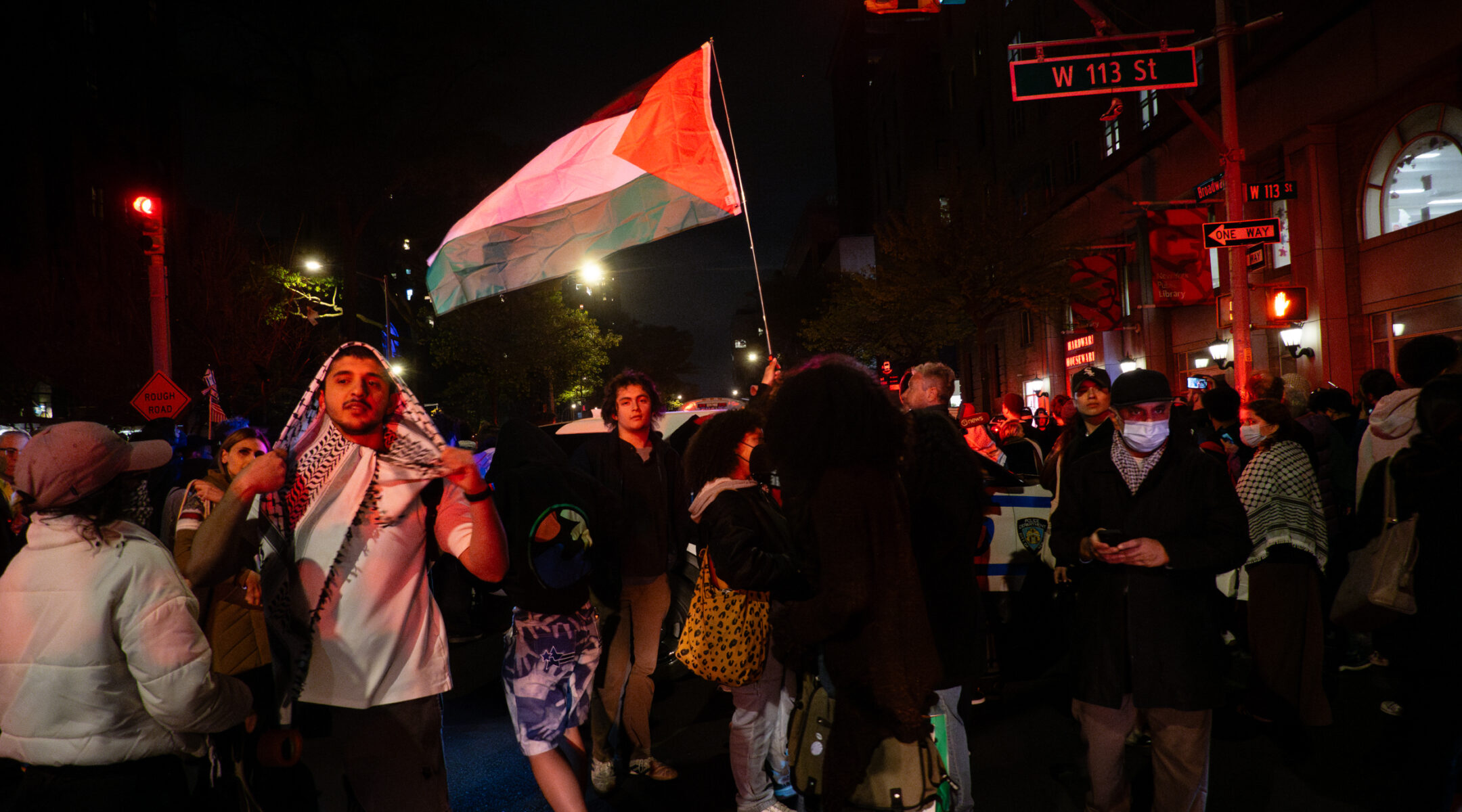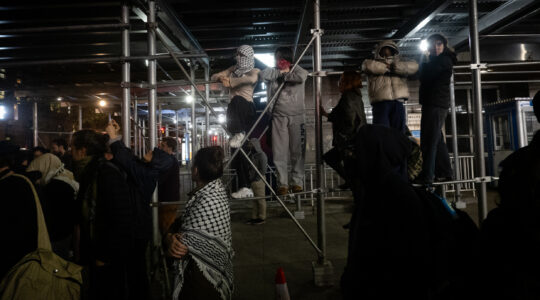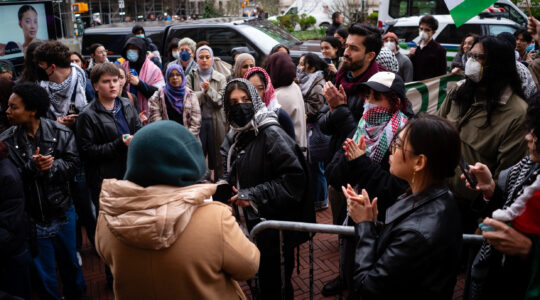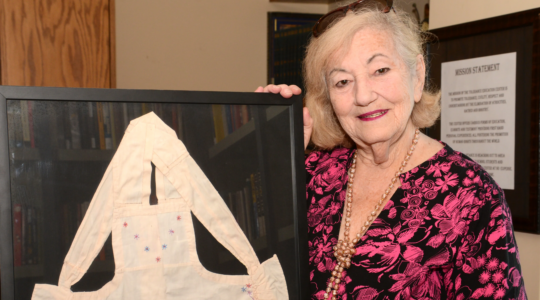Three Columbia University administrators have “been permanently removed from their positions” after sending a series of derisive text messages during a panel on campus Jewish life, the university’s provost announced Monday.
In an accompanying letter, Columbia President Minouche Shafik wrote that the texts echoed antisemitism and vowed to start a “vigorous program of antisemitism and antidiscrimination training” in the fall, when classes reconvene.
“This incident revealed behavior and sentiments that were not only unprofessional, but also, disturbingly touched on ancient antisemitic tropes,” Shafik said in an email to the campus community on Monday morning. “These sentiments are unacceptable and deeply upsetting, conveying a lack of seriousness about the concerns and the experiences of members of our Jewish community.”
A fourth dean who was involved in one of the text exchanges apologized and likewise acknowledged that the conversations “call to mind antisemitic tropes.”
The text messages — sent during the panel at the end of May and first reported last month — downplayed accounts of campus antisemitism and suggested that a Hillel official was leveraging them for fundraising. They have drawn attention and condemnation from lawmakers and Jewish leaders, and renewed calls for action to combat antisemitism at the Ivy League university, which has seen raucous pro-Palestinian activism and a series of antisemitism allegations since the outbreak of the Israel-Hamas war on Oct. 7.
The three deans at the center of the group chat — Susan Chang-Kim, the university’s vice dean and chief administrative officer; Cristen Kromm, a dean of undergraduate student life, and Matthew Patashnick, an associate vice dean for student and family support — were placed on leave shortly after the texts first came to light.
Now, Provost Angela V. Olinto said in a statement, “The three staff members involved have been permanently removed from their positions at Columbia College and remain on leave at this time.” The statement did not elaborate on whether that means the deans had been fired, and Columbia did not immediately respond to a request for clarification.
“President Shafik and I expect the College administration to deliver concrete change in combating antisemitism and discrimination and creating a fully inclusive environment,” Olinto said. “I am eager to work closely with Columbia College’s leaders, leaders of our Jewish community, and partners across the University as we undertake this deeply important part of our mission.”
Taking part in that effort, Olinto said, would be the dean of Columbia College, Josef Sorett — who was also involved in a separate text exchange with Chang-Kim during the same panel. In a Monday morning email to Columbia College, Sorett acknowledged that “some of the text messages exchanged may call to mind antisemitic tropes.”
“I am deeply sorry that this happened in a community that I lead and that I was part of any of the exchanges,” Sorett said, adding that he had reached out to all speakers on the panel to apologize.
It wasn’t clear if Sorett will face any disciplinary action for his involvement, but more than 1,000 Columbia alumni have demanded his removal in a petition.
“Sorett’s actions give an explicit endorsement to a culture of antisemitism and demonstrate his flawed judgment, lack of character, and inability to lead at a critical time for Columbia,” the petition said. “Sorett is wholly discredited in the eyes of alumni and students. His continuing as Dean of Columbia College is untenable.”
Support the New York Jewish Week
Our nonprofit newsroom depends on readers like you. Make a donation now to support independent Jewish journalism in New York.
The text message exchanges took place while the administrators were attending a May 31 panel discussion titled “Jewish Life on Campus: Past, Present, and Future.” At the panel, a Jewish student, Columbia Hillel director Brian Cohen and two other panelists discussed antisemitism at the school following Oct. 7.
“Comes from such a place of privilege,” wrote Chang-Kim. “Hard to hear the woe is me, we need to huddle at the Kraft Center,” referring to Columbia’s Jewish student center, where Hillel is housed.
“Yup. Blind to the idea that non-Israel supporting Jews have no space to come together,” responded Kromm.
While Cohen was speaking about students’ efforts to gain attention, Kromm wrote “Amazing what $$$$ can do.” At another point while Cohen was speaking, Chang-Kim wrote, “He is such a problem!”
Patashnick wrote, “He knows exactly what he’s doing and has to take full advantage of this moment. Huge fundraising potential.”
In a separate exchange, Chang-Kim wrote “He is our hero” in an apparently sarcastic message about Cohen. Nine minutes later, Sorett wrote, “Lmao,” an acronym denoting laughter, though whether that was a response to Kim or something else was unclear. He did not respond to a request for comment at the time.
Some of the text messages were first photographed by an audience member who was sitting behind one of the administrators during the panel and were first reported by the Washington Free Beacon, a conservative news outlet. The House Committee on Education and the Workforce, which is investigating antisemitism at Columbia and other campuses, later obtained and released the full text message exchanges.
In addition to Cohen, the panelists were former law school Dean David Schizer, who co-chairs the university’s antisemitism task force; Rebecca Massel, a student journalist for the Columbia Spectator, the campus newspaper; and Ian Rottenberg, the director of the school’s Center for Religious Life.





